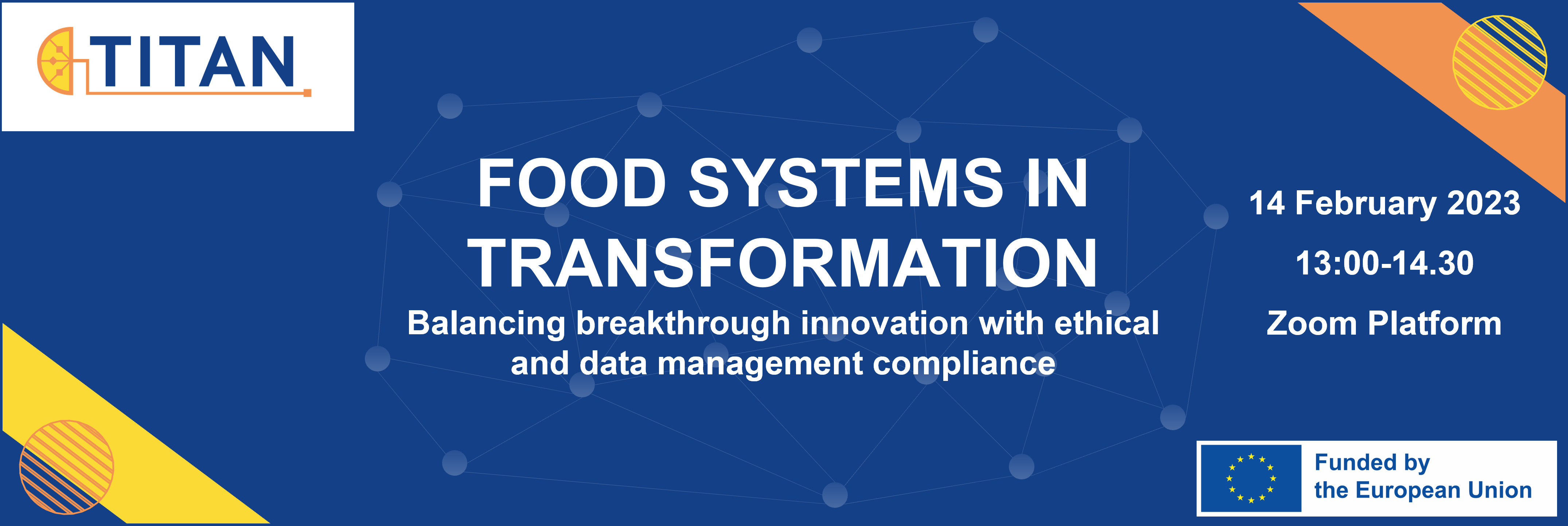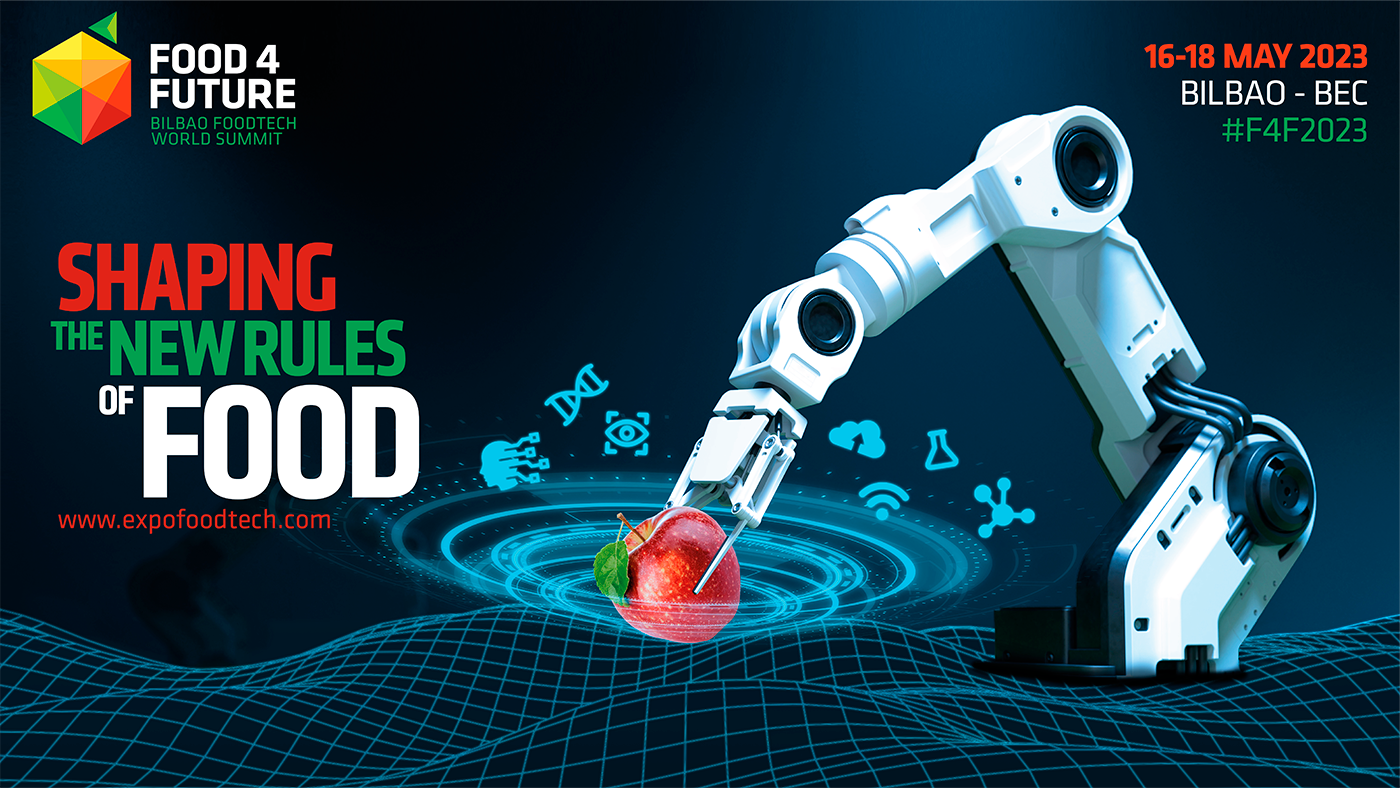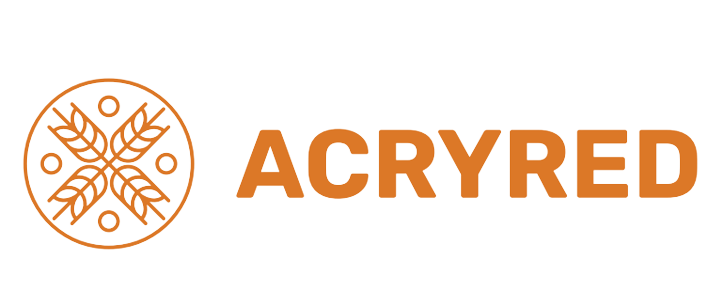ILSI Europe hosts, sponsors, and co-organises a variety of scientific events. These include independent symposia, workshops, webinars, hands-on scientific trainings and sessions held as part of the program of larger scientific conferences or professional meetings.
Explore below our past events for recordings, agendas, copies of presentations, meeting summaries and other reports.
Past Events
Food 4 Future – Bilbao FoodTech World Summit
16/05/2023 – 18/05/2023
Bilbao, Spain
ILSI Europe will be present at Food 4 Future, the Bilbao FoodTech World Summit, as a strategic partner with a booth and a session to present our EU-funded project TITAN.
ACRYRED first workshop
11/05/2023 – 12/05/2023
Martonvásár, Hungary
Early Career Scientists Event 2023 – “Food contaminants: emerging challenges between safety and sustainability.”
04/05/2023
Wageningen University, The Netherlands
Co-building ILSI Europe’s new future-looking research agenda
19/04/2023
Brussels, Belgium
Food Systems in transformation – Balancing breakthrough innovation with ethical and data management compliance
14/02/2023
Webinar, Zoom
- 09:00 Introduction by Isabelle Guelinckx
- 09:15 First "World Café" on research themes from our three pillars, followed by a plenary debrief.
- 10:45-11:00: Break
- 11:10 Keynote presentation by Pr. Olivier De Schutter, followed by Q&A.
- 11:50 Second "World Café" on transversal research themes, followed by a plenary debrief.
- 13:15 Conclusion
- 13:30-14:30 Lunch
The Word Café animation technique will allow for a dynamic workshop during which all participants will be able to provide input to all the themes, and network at the same time.
Dowload the keynote presentationAbout the themes
Here are some of the themes that were put forward as priority research areas by the expert panels and that will be proposed in the workshop to formulate research questions:
- Ingredients, foods and diets for the future
- Processing for safe, nutritious & sustainable food
- Stratified approaches to screen & address double burden of malnutrition
- Characterising & evaluating health impact of what we eat
- 15 years of health claim: where are we now and where are we heading?
- Assessing reality of risk
- Risk vs benefit in Food Safety
About the speakers
Prof. Olivier De Schutter (LL.M., Harvard) teaches at the University of Louvain (UCL) and at Sciences Po (Paris). A member of the Global Law School Faculty at New York University, he was a visiting professor at Columbia University in 2008-2013, and he helped launch the Berkeley Food Institute in 2013-2014. In 2013, he was awarded the prestigious Francqui Prize for his contribution to the social sciences and the humanities.
teaches at the University of Louvain (UCL) and at Sciences Po (Paris). A member of the Global Law School Faculty at New York University, he was a visiting professor at Columbia University in 2008-2013, and he helped launch the Berkeley Food Institute in 2013-2014. In 2013, he was awarded the prestigious Francqui Prize for his contribution to the social sciences and the humanities.Mr. De Schutter was the United Nations Special Rapporteur on the Right to Food between 2008 and 2014. In that capacity he travelled to investigate on the situation of the right to food in different world regions, and he presented a total of 30 reports to the Human Rights Council and to the UN General Assembly on various aspects of the food systems or on his country missions (see http://www.srfood.org). An expert on social and economic rights and on economic globalization and human rights, was elected to the United Nations Committee on Economic, Social and Cultural Rights in 2015, a position he left to become the UN Special Rapporteur on extreme poverty and human rights in 2020. He co-chairs the International Panel of experts on sustainable food systems (IPES-Food) since the establishment of IPES-Food in 2015.
Dr. Isabelle Guelinckx, Scientific Director at ILSI Europe, Br ussel, Belgium since September 2019. She received her MSc and Ph.D. in Biomedical Sciences at the Catholic University of Leuven, Belgium. She also completed a second Master of Science in Physical Activity and Health at the University Maastricht, the Netherlands and a professional Bachelor in Dietetics and Nutrition at the Catholic College Leuven, Belgium. After 10 years within academia, Isabelle jointed the central R&D of Danone Nutricia Research, France where she managed R&D projects and later on R&D team. Her major research focus with over 40 publications was on the nutritional assessment of fluid intake via the Liq.in7 surveys in populations worldwide. At ILSI Europe Isabelle is responsible for the identification and implementation of scientific profolio, Eu-funded projects and the link with the Scientific Advisory Committee.
ussel, Belgium since September 2019. She received her MSc and Ph.D. in Biomedical Sciences at the Catholic University of Leuven, Belgium. She also completed a second Master of Science in Physical Activity and Health at the University Maastricht, the Netherlands and a professional Bachelor in Dietetics and Nutrition at the Catholic College Leuven, Belgium. After 10 years within academia, Isabelle jointed the central R&D of Danone Nutricia Research, France where she managed R&D projects and later on R&D team. Her major research focus with over 40 publications was on the nutritional assessment of fluid intake via the Liq.in7 surveys in populations worldwide. At ILSI Europe Isabelle is responsible for the identification and implementation of scientific profolio, Eu-funded projects and the link with the Scientific Advisory Committee.
Registration
Limited to 45 participants. Register to the workshop below before 17 April 2023.
Registrations are closed for this event.
Download the list of participantsCancellation policy
For registrations, all cancellations should be made in writing to Hugo Costa (hcosta@ilsieurope.be). Cancellations received before 10 April 2023 will be refunded minus €50 handling charges. Cancellations received after 10 April 2023 will not be refunded. Substitutions of registrations are accepted if made in writing to Hugo Costa.
About the venue and getting there
The Conference will take place in Comet Meetings Louise - Pl. Stéphanie 20, 1050 Brussels (https://www.comet-meetings.com/lieux/comet-louise) (Open from 8am to 18pm)
The Comet Meetings Louise is located in the heart of the Louise district. Public transport is an excellent option to reach the venue. You can find the public transportation timetable here: https://www.stib-mivb.be/horaires-dienstregeling2.html?l=en.
Metro, tram and bus
- (M) Louise - Lines 2 and 6 (5 min walk)
- (T) Louise - Lines 8, 92, 93, 97 (5 min walk)
- (T) Stéphanie - Lines 8, 92, 93 (2min walk)
- (B) Stéphanie - Line N11 (3min walk)
If you decide to come by your own car, you will find several parking options just a few minutes' walk away.
Parking
- Inter-Parking Parking Stéphanie (4min walk)
- Q-Park Parking (4min walk)
- ZenPark Parking (5min walk)
Access
The registration desk will be opened during the following hours:19th April: 08:30 - 09:30
Access to the conference will only be granted to registered participants. Upon arrival all participants will be checked in, a personal badge and lanyard will be provided.
Accessibility for everyone is one of our priorities. Therefore, Comet have put in place various devices that make their facilities accessible to people with reduced mobility (PRM)
If you have any questions or specific access requirements, please email us at any time at hcosta@ilsieurope.be
WiFi
Free internet is provided throughout the venue.
Accomodation
Participants are responsible for their own travel and accommodation arrangements. A list of hotels close to Comet Meetings Louise can be found here.
Recording and photos
Video recording and photos will be taken during the event for communication purposes.
Contact
For more information about the workshop aims and program, please contact Isabelle Guelinckx at iguelinckx@ilsieurope.be
For questions about the registration, please contact Hugo Costa at hcosta@ilsieurope.be
[post_title] => Co-building ILSI Europe's new future-looking research agenda [post_excerpt] => [post_status] => publish [comment_status] => closed [ping_status] => closed [post_password] => [post_name] => workshop-19april2023 [to_ping] => [pinged] => [post_modified] => 2023-04-26 13:44:32 [post_modified_gmt] => 2023-04-26 13:44:32 [post_content_filtered] => [post_parent] => 0 [guid] => https://ilsi.eu/?post_type=event&p=12511 [menu_order] => 0 [post_type] => event [post_mime_type] => [comment_count] => 0 [filter] => raw ) [4] => WP_Post Object ( [ID] => 12385 [post_author] => 24 [post_date] => 2023-01-18 07:10:03 [post_date_gmt] => 2023-01-18 07:10:03 [post_content] =>
PLEASE CLICK
Innovative and digital technologies, such as Artificial Intelligence (AI), Blockchain and Internet of Things (IoT), can enable the transformation of the food system into a demand-driven economy that provides consumers with healthy and sustainable food. The TITAN project, funded by the European Commission under the Horizon Europe programme, aims to support the pursuit of this goal through the deployment of 15 different technology pilots.
In this webinar, expert in AI ethics Christina Cociancig will provide guidance on the informed and aware governance of the ethical and data management risks of deploying such disruptive technologies. You will also discover the three TITAN's pilots based on AI.
Speakers
- Ms Christina Cociancig, TITAN Ethics Advisor, AI Consultant and AI Ethics Researcher, DPO (AT)
- Ms Amparo Roca, COO at AI Talentum (ES)
- Mr Manos Karvounis, Research and Innovation Manager at Agroknow (GR)
- Dr Bert Popping, Chief Executive Officer at FOCOS (DE)
Moderator
- Dr Isabelle Guelinckx, Scientific Program Director, ILSI Europe (BE)
Contact
- For more information on this digital event, please contact Mr Andrea Colafranceschi, EU Project Officer, ILSI Europe (BE) at acolafranceschi@ilsieurope.be
 [post_title] => Food 4 Future - Bilbao FoodTech World Summit
[post_excerpt] =>
[post_status] => publish
[comment_status] => closed
[ping_status] => closed
[post_password] =>
[post_name] => food4future2023
[to_ping] =>
[pinged] =>
[post_modified] => 2023-03-20 17:49:51
[post_modified_gmt] => 2023-03-20 17:49:51
[post_content_filtered] =>
[post_parent] => 0
[guid] => https://ilsi.eu/?post_type=event&p=12540
[menu_order] => 0
[post_type] => event
[post_mime_type] =>
[comment_count] => 0
[filter] => raw
)
[comment_count] => 0
[current_comment] => -1
[found_posts] => 191
[max_num_pages] => 39
[max_num_comment_pages] => 0
[is_single] =>
[is_preview] =>
[is_page] =>
[is_archive] =>
[is_date] =>
[is_year] =>
[is_month] =>
[is_day] =>
[is_time] =>
[is_author] =>
[is_category] =>
[is_tag] =>
[is_tax] =>
[is_search] =>
[is_feed] =>
[is_comment_feed] =>
[is_trackback] =>
[is_home] => 1
[is_privacy_policy] =>
[is_404] =>
[is_embed] =>
[is_paged] => 1
[is_admin] =>
[is_attachment] =>
[is_singular] =>
[is_robots] =>
[is_favicon] =>
[is_posts_page] =>
[is_post_type_archive] =>
[query_vars_hash:WP_Query:private] => 4364b6062831f91f898b7befa5855587
[query_vars_changed:WP_Query:private] =>
[thumbnails_cached] =>
[allow_query_attachment_by_filename:protected] =>
[stopwords:WP_Query:private] =>
[compat_fields:WP_Query:private] => Array
(
[0] => query_vars_hash
[1] => query_vars_changed
)
[compat_methods:WP_Query:private] => Array
(
[0] => init_query_flags
[1] => parse_tax_query
)
)
[post_title] => Food 4 Future - Bilbao FoodTech World Summit
[post_excerpt] =>
[post_status] => publish
[comment_status] => closed
[ping_status] => closed
[post_password] =>
[post_name] => food4future2023
[to_ping] =>
[pinged] =>
[post_modified] => 2023-03-20 17:49:51
[post_modified_gmt] => 2023-03-20 17:49:51
[post_content_filtered] =>
[post_parent] => 0
[guid] => https://ilsi.eu/?post_type=event&p=12540
[menu_order] => 0
[post_type] => event
[post_mime_type] =>
[comment_count] => 0
[filter] => raw
)
[comment_count] => 0
[current_comment] => -1
[found_posts] => 191
[max_num_pages] => 39
[max_num_comment_pages] => 0
[is_single] =>
[is_preview] =>
[is_page] =>
[is_archive] =>
[is_date] =>
[is_year] =>
[is_month] =>
[is_day] =>
[is_time] =>
[is_author] =>
[is_category] =>
[is_tag] =>
[is_tax] =>
[is_search] =>
[is_feed] =>
[is_comment_feed] =>
[is_trackback] =>
[is_home] => 1
[is_privacy_policy] =>
[is_404] =>
[is_embed] =>
[is_paged] => 1
[is_admin] =>
[is_attachment] =>
[is_singular] =>
[is_robots] =>
[is_favicon] =>
[is_posts_page] =>
[is_post_type_archive] =>
[query_vars_hash:WP_Query:private] => 4364b6062831f91f898b7befa5855587
[query_vars_changed:WP_Query:private] =>
[thumbnails_cached] =>
[allow_query_attachment_by_filename:protected] =>
[stopwords:WP_Query:private] =>
[compat_fields:WP_Query:private] => Array
(
[0] => query_vars_hash
[1] => query_vars_changed
)
[compat_methods:WP_Query:private] => Array
(
[0] => init_query_flags
[1] => parse_tax_query
)
)

 [post_title] => ACRYRED first workshop
[post_excerpt] =>
[post_status] => publish
[comment_status] => closed
[ping_status] => closed
[post_password] =>
[post_name] => acryred-first-workshop
[to_ping] =>
[pinged] =>
[post_modified] => 2023-03-23 11:30:06
[post_modified_gmt] => 2023-03-23 11:30:06
[post_content_filtered] =>
[post_parent] => 0
[guid] => https://ilsi.eu/?post_type=event&p=12560
[menu_order] => 0
[post_type] => event
[post_mime_type] =>
[comment_count] => 0
[filter] => raw
)
[2] => WP_Post Object
(
[ID] => 12312
[post_author] => 351
[post_date] => 2022-12-14 15:27:25
[post_date_gmt] => 2022-12-14 15:27:25
[post_content] =>
[post_title] => ACRYRED first workshop
[post_excerpt] =>
[post_status] => publish
[comment_status] => closed
[ping_status] => closed
[post_password] =>
[post_name] => acryred-first-workshop
[to_ping] =>
[pinged] =>
[post_modified] => 2023-03-23 11:30:06
[post_modified_gmt] => 2023-03-23 11:30:06
[post_content_filtered] =>
[post_parent] => 0
[guid] => https://ilsi.eu/?post_type=event&p=12560
[menu_order] => 0
[post_type] => event
[post_mime_type] =>
[comment_count] => 0
[filter] => raw
)
[2] => WP_Post Object
(
[ID] => 12312
[post_author] => 351
[post_date] => 2022-12-14 15:27:25
[post_date_gmt] => 2022-12-14 15:27:25
[post_content] =>
 [post_title] => Early Career Scientists Event 2023 - "Food contaminants: emerging challenges between safety and sustainability."
[post_excerpt] =>
[post_status] => publish
[comment_status] => closed
[ping_status] => closed
[post_password] =>
[post_name] => early-career-scientists-event-2023-food-contaminants-emerging-challenges-between-safety-and-sustainability
[to_ping] =>
[pinged] =>
[post_modified] => 2023-05-22 13:06:09
[post_modified_gmt] => 2023-05-22 13:06:09
[post_content_filtered] =>
[post_parent] => 0
[guid] => https://ilsi.eu/?post_type=event&p=12312
[menu_order] => 0
[post_type] => event
[post_mime_type] =>
[comment_count] => 0
[filter] => raw
)
[3] => WP_Post Object
(
[ID] => 12511
[post_author] => 355
[post_date] => 2023-02-28 11:53:23
[post_date_gmt] => 2023-02-28 11:53:23
[post_content] =>
[post_title] => Early Career Scientists Event 2023 - "Food contaminants: emerging challenges between safety and sustainability."
[post_excerpt] =>
[post_status] => publish
[comment_status] => closed
[ping_status] => closed
[post_password] =>
[post_name] => early-career-scientists-event-2023-food-contaminants-emerging-challenges-between-safety-and-sustainability
[to_ping] =>
[pinged] =>
[post_modified] => 2023-05-22 13:06:09
[post_modified_gmt] => 2023-05-22 13:06:09
[post_content_filtered] =>
[post_parent] => 0
[guid] => https://ilsi.eu/?post_type=event&p=12312
[menu_order] => 0
[post_type] => event
[post_mime_type] =>
[comment_count] => 0
[filter] => raw
)
[3] => WP_Post Object
(
[ID] => 12511
[post_author] => 355
[post_date] => 2023-02-28 11:53:23
[post_date_gmt] => 2023-02-28 11:53:23
[post_content] =>

